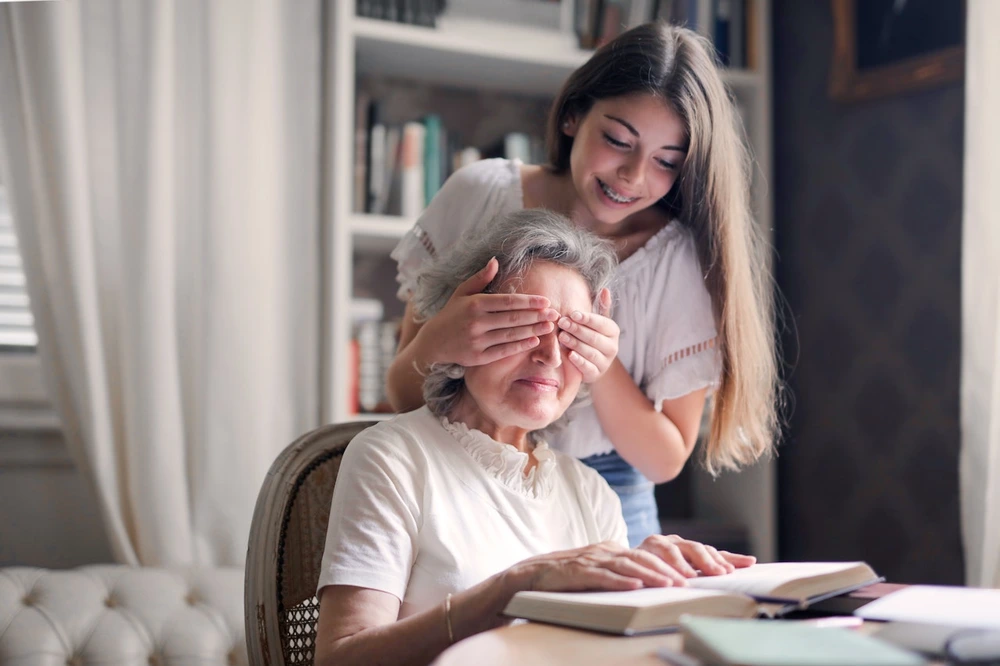The state of one’s health and happiness is of paramount significance as one ages. Physical and mental ailments are common among the elderly and can hurt their quality of life. Knowing how to care for an older adult’s health and well-being properly is a crucial skill for any caregiver or family member.
To do this, we must recognize their specific requirements and give them the help and means they need to thrive. Here, some effective methods and advice for caring for the elderly are discussed.
Care For The Health And Happiness Of The Elderly
It is a serious obligation to be responsible for an older person’s physical and mental well-being. People’s health needs change as they age, and it’s important to be prepared to handle various issues. Some approaches on how to care for an older person’s health and happiness are discussed below:
Monitor Food Intake
Healthy eating is especially important for those of retirement age. A younger body may have different nutritional requirements than an older one. The elderly require a diet high in all four major food groups. This can help older individuals get the nutrients they need to stay healthy and active.
By recommending a diet rich in fruits, vegetables, whole grains, lean meats, and low-fat dairy products, you can help ensure that your elderly loved ones are getting the nourishment they need. Seniors can benefit from being reminded to drink plenty of water and other nutritious liquids as well. Seniors who have difficulty chewing or swallowing may benefit from a change in the meal’s texture.
Encourage More Exercise
The health and happiness of seniors depend on many factors, one of which is regular physical activity. Seniors can benefit from increased strength, flexibility, balance, and overall health if they are encouraged to maintain an active lifestyle. Walking, stretching, and gentle yoga are great examples of light exercises that can help elders.
You can get elders moving by assisting them in discovering activities they would enjoy and that are within their physical capabilities. Activities like swimming, gardening, and other group workouts fall into this category. If seniors have limited mobility, you might urge them to do chair exercises or take brief walks throughout the day.
Control Their Medication
You can help manage medications for senior memory care by creating a daily medication schedule and using pill boxes or other reminders to ensure that medications are taken as prescribed. It is also important to communicate with healthcare providers and pharmacists to ensure all medications are properly labeled and in appropriate dosages.
Regular medication reviews can also help prevent medication errors and ensure that the senior’s medications are still appropriate and effective for their health conditions. You can work with healthcare providers to regularly review medications and make adjustments as needed.
Keep An Eye On Their Health
Care for the health and well-being of seniors should include regular health monitoring. Many seniors over the age of 65 have chronic diseases that require round-the-clock care. Better health outcomes and more efficient treatment are possible because early detection of changes in health status is made possible by regular monitoring.
Keeping a health journal to record symptoms, taking blood pressure and glucose readings, and visiting doctors regularly are all helpful ways to keep tabs on your health. Keeping your doctor updated on any health issues or changes you’re experiencing is crucial.
Offer a Protective Community Environment
Due to age-related losses in balance and mobility, seniors are at an increased risk of falls, injuries, and accidents. Creating a secure home helps protect its inhabitants from many potential dangers.
You may make your home safer by doing things like securing any loose rugs or clearing away any debris, adding grab bars in the bathroom, and making sure there is sufficient lighting in every area. Installing smoke and carbon monoxide detectors in the homes of the elderly is a preventative measure.
Caregiving For Older Adults: Meeting Their Emotional Needs
The mental well-being of older people is just as important as their physical health while providing care for them. Changes in one’s health and way of life can bring on a wide range of feelings after a certain age. Some suggestions for meeting the emotional needs of the older adults you care for:
Keep Your Ears Open
Listening attentively is a crucial step in meeting the emotional needs of older people. This entails showing interest in the other person’s words by asking pertinent questions and providing sympathetic responses. Active listening can go a long way toward meeting the emotional needs of elders by making them feel heard and understood.
Reassure And Encourage Them
If a senior is dealing with health problems or a change in living arrangements, they may experience anxiety, loneliness, or sadness. Comfort and relief can be provided by reassuring and supporting the person experiencing these emotions. You can assist by letting the older adult know they have your concern, listening to their problems, and reassuring them that they are not alone.
Foster Interaction
Seniors who get out and interact with others are less likely to experience the negative effects of isolation and loneliness. If the older adult in your care is socially isolated, it’s important to encourage them to get out and mingle with others.
Conclusion
It is possible to assist the elderly in living a long, healthy, and happy life by giving them the care and attention they need. Caregivers and family members owe it to the elderly they care for to pay attention to their concerns, learn about their circumstances, and then offer the appropriate assistance. You may have a significant impact on the lives of older people you care for with just a little bit of time and commitment.






